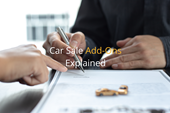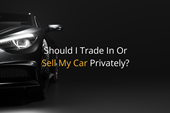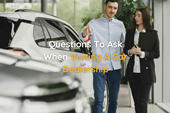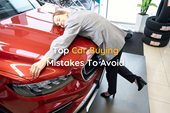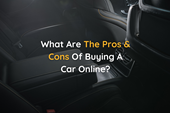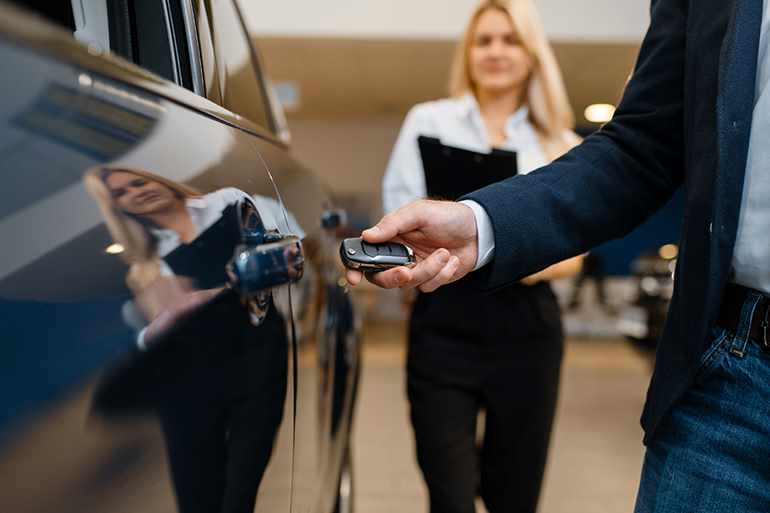
How car dealerships are adapting to cope with coronavirus
The coronavirus has brought virtually every industry to its knees, and motoring has been no exception. Every motoring department has seen fundamental shifts, from the design and manufacture of vehicles through to the way they're bought. Provincial light is at the end of the tunnel, however, as since June 1st car dealers have begun being allowed to reopen.
They have had to make considerable changes to do so, however, so what do you need to know?
What have the dealers done?
In order to reopen, dealerships must now display a blue certificate in their window - signed and dated. This blue certificate shows they have understood and agreed to implement the steps necessary to minimise the risk of coronavirus transmission.
Broadly speaking, these measures include the following:
- A vigorous and regular approach to hand-washing
- Thorough sanitation and disinfection of the site
- Employee awareness and training of infection risks
- Implementation of "work from home" policies where possible
- Clearly visible social distancing markings on site
- All reasonable steps taken to manage transmission risk
Dealerships will have been subject to an inspection to ensure these guidelines and general working practices have been understood and adopted. They will also be subject to ongoing random spot-checks, to ensure these guidelines are indeed a consistent part of how they operate.
What happens when you go to a dealer?
Before you arrive to browse
Before coronavirus, you could just stroll into a dealership whenever you liked during opening hours for a browse. This, for most dealerships, is no longer the case. Many dealers are now shifting to "appointment only" visiting. This means you call and arrange your window well in advance of arriving - this gives the dealership time to ensure the place is properly cleaned, and that social distancing can still be maintained. It also allows them to limit the number of people on the premises at any given moment, which again will help to minimise potential infection risks.
Taking the vehicle for a test drive
Money is tight for a lot of people at the moment, so of course, you'll want to take a vehicle for a drive to ensure it's right for you before committing to purchasing it. Test drives are a time-honoured part of the car buying process, and for many, it's their favourite part. Dealers will still be offering test drives post-coronavirus, but they will change slightly. An employee from the dealership will no longer accompany you. You'll be made familiar with the test-route beforehand, the vehicle will be sterilised for you and trade plates applied, then you can go for your drive. When you get back the car will be sterilised again.
The actual buying process
If you decide to buy the vehicle you'll still go into the dealership to sign the paperwork, however things there will change too - much like supermarkets, you will now see plastic screens, employees wearing masks, and social distance markers on the floor. The dealership will do everything they can to ensure that you have the most "non-contact" buying experience possible.
Buying your vehicle online
Many dealerships are negating the need to visit their premises at all by making use of the power of the internet. Dealers are posting detailed photographs, and even offering video demonstrations of their vehicles. This may be a prerecorded test drive video, or it may be done live via video-calling apps.
The buying process itself is now also remote for many dealers. You can arrange payment either by bank transfer or debit/credit card, and any financing can be arranged online if that's how you're buying the vehicle. Many dealerships are now offering nationwide delivery of their vehicles too - whereby you pay wholly or partly for the vehicle and it's brought to your doorstep by a car transporter. If you have paid partially you can then inspect the vehicle, and complete payment/paperwork. This means you don't have to visit the dealership at all.
Dealers want your custom, so they are going to be willing to do whatever it takes to ensure that you have the safest possible buying experience. If you're not comfortable with something, or you think appropriate steps aren't being taken, take your business elsewhere - every car dealer is expected to alter the way they operate to keep customers and employees as safe as possible.
Coronavirus has presented many challenges in the motoring industry - but dealers are now open again with these measures in place to keep you safe. Buying your next vehicle, and insuring it with free Gap Insurance, before taking to the road is actually now easier than ever.





